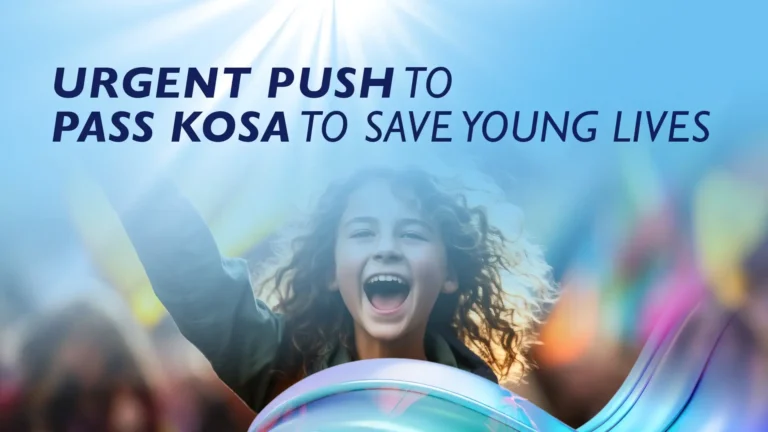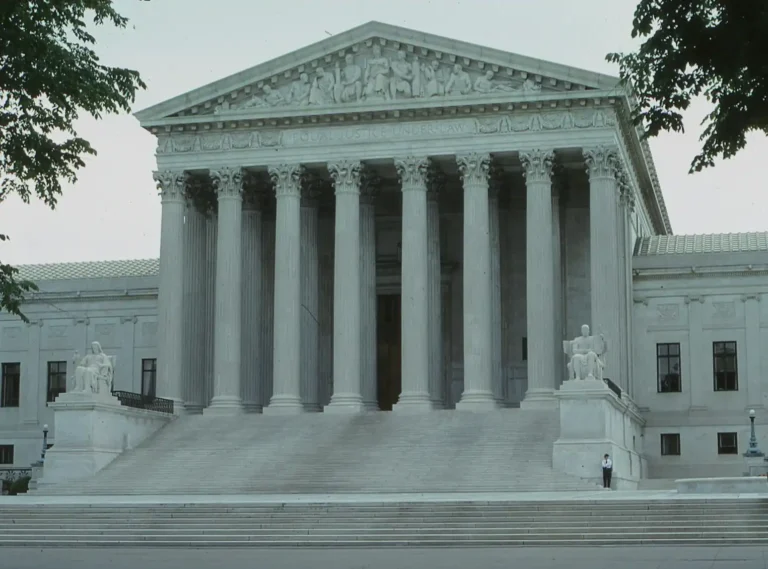The world we live in today is almost completely digital. For young people, the Internet is increasingly used to learn, play, and connect with others across the globe and even across the street. And while new technology has opened many positive ways for children to learn and grow, it has also unleashed a Pandora’s Box of threats to their well-being. Children today are targeted with an onslaught of predatory actions and online threats that no generation has ever faced before — and parents and teachers are overwhelmed trying to keep up.
By age 11, more than half of American children own a smartphone, and on average, outside of schoolwork, teenagers spend more than seven hours viewing screen media each day. What exactly are they viewing? Children can now gain access to depictions of almost any type of sexual behavior from almost anywhere through the proliferation of hardcore pornography across all corners of the Internet. This type of exposure is a negative influence on the development of adolescents.
Exposure to internet pornography can lead children—both boys and girls—to engage in pornography use, which in its hardcore form has been linked to harmful outcomes such as:
- verbal memory impairment,
- decreased academic performance,
- mental health problems,
- child-on-child harmful sexual behaviors,
- increased sexual aggression, and
- greater sexual victimization.
This is especially concerning given a survey of 813 U.S. teens and young adults (13–25) which found that 26% of adolescents aged 13–17 actively seek out pornography weekly or more often. Research has demonstrated that adolescents are more susceptible than adults to addictions and to developmental effects on the brain.
Other harmful impacts of pornography consumption on children and teens are:
- Normalizing violence against women and girls
- Glorifying racism, incest, and extreme violence depicted in mainstream pornography
- Higher likelihood of participating in risky sexual behavior
- Damaging body-image, self-esteem, and creating pressure to perform uncomfortable or unwanted sex acts
We cannot leave children to face hardcore, abusive, and dangerous pornography content out there alone.
So what can be done?
Researcher, Professor, and Author Dr. John Foubert’s Background
Fortunately for parents and caregivers, protecting your children from online dangers is not an impossible task. There are a multitude of resources and experts who have dedicated their research and work to educating others about the problem and identifying the best solutions to move forward.
One such expert is Dr. John Foubert, Ph.D, an interdisciplinary scholar with over 50 peer-reviewed publications on topics ranging from sexual violence to the harms of pornography. He is Dean of the College of Education at Union University and serves as the Highly Qualified Expert for Sexual Assault Prevention for the U.S. Army. Dr. Foubert founded the national nonprofit organization, One in Four, an organization that worked for 20 years to apply research to rape prevention programs on college campuses, in communities, and in the military.
A member of the National Center on Sexual Exploitation’s Board of Directors, Dr. Foubert is an incredible resource and powerful ally who regularly speaks on how to prevent rape and sexual violence and has given approximately 300 professional presentations to conferences, universities, community and military organizations worldwide.
Dr. Foubert has written several books on sexual exploitation, and now is the author of the new book Protecting Your Children from Internet Pornography: Understanding the Science, Risks, and Ways to Protect Your Kids – offering critical insights into the problem of pornography today and giving practical solutions for those looking to protect their families and the vulnerable children in their lives.
NCOSE’s Interview with Dr. John Foubert, author of Protecting Your Children from Internet Pornography: Understanding the Science, Risks, and Ways to Protect Your Kids
NCOSE: Tell us a little bit about your new book.
Dr. Foubert: Protecting Your Children from Internet Pornography: Understanding the Science, Risks, and Ways to Protect Your Kids is my attempt to show parents how pornography consumption has changed, how it’s affecting their children, and what they can do to keep their kids safe. In it, I expose the many ways that pornography is menacing people, relationships, society, and — especially — our children. Readers will learn complex concepts in practical terms like how pornography affects the brain, how pornography is a recipe for sexual violence, and why you should take measures to protect your children and those you love.
A scholarly perspective is well balanced by practical suggestions at the end of each chapter that give parents advice on how to apply the information in their own home. It is time for a national conversation about what pornography is really all about. This book opens the door on that discussion and invites the reader to join the battle against porn with greater knowledge of its actual effects. Readers will be disturbed, shocked, motivated, and empowered to make a difference after reading it.
NCOSE: Who is the target audience for your book? Is it only for parents of children?
Dr. Foubert: The main target audience for the book is parents of children from birth through 18. What I’ve noticed in more than a decade of studying and speaking about pornography is that a lot of parents want to do the right thing and protect their children from pornography, but they don’t quite know what to do. Protecting Your Children from Internet Pornography fills in this gap by educating parents about the harmful effects of porn (which they can share with their kids) and provides real-life practical suggestions about what questions to ask children of various ages and stages to get them talking about the issue.
The book isn’t just for parents. It is really for anyone who wants to know more about the harms of pornography and what we as a society can do to fight back against an industry that is trying to rewrite the sexual template of every generation.
NCOSE: You’ve written quite a few books on topics of sexual exploitation. What inspired you to write this one specifically?
Dr. Foubert: In writing Protecting Your Children from Internet Pornography, I was inspired by so many people who feel helpless to protect their kids from the horrible menace of pornography. Parents don’t naturally want harm to be done to their kids. Parents want to prevent harm done to their kids. But in the area of pornography, it is a very tough issue to tackle. I don’t think parents should do this alone. I think they can benefit from the work I’ve done to document the research on the harms of pornography, the interviews I’ve completed with those who have been affected by it, and the practical wisdom I have to share about questions to ask your kids.
NCOSE: What is the most important message you want readers to walk away with after reading your book?
Dr. Foubert: The most important message I want readers to walk away with is that they are their children’s greatest hope to fight back against the rampant availability of pornography that will, one way or another, be viewed by their kids. Parents have a right to fight back, and a responsibility to do so in a way that will be effective. I believe that raising our kids so that they can talk about anything they want with us and regularly asking them questions about what they are viewing online and whether they have seen pornography is a critical piece of the anti-porn puzzle.
NCOSE: What are some actions or next steps readers can take?
Dr. Foubert: I hope that readers who have toddlers will start conversations with them about how their family loves to take pictures, but we wouldn’t want to take pictures of people’s private parts because they are private. Therefore we don’t look at pictures of people who don’t have clothes on either. I hope that readers who have 8-11 year olds will ask their children if they have heard the word ‘pornography’ before and do they know what they would do if someone showed it to them. I hope readers of teens will ask their children what they do when someone shows them a picture of a person who doesn’t have clothes on, or when it pops up on their screen. I hope all parents will have good, healthy, regular conversations with their children about pornography, the harms it can do to them, and why their family has values that looking at pornography doesn’t fit. I also hope that readers will visit my website at www.johnfoubert.com for more research on the harms of pornography. Finally, I hope they will go to the website of the National Center on Sexual Exploitation and find out how they can get more involved with fighting sexual exploitation with all they’ve got.
Learn More and Take Action
Protecting Your Children from Internet Pornography: Understanding the Science, Risks, and Ways to Protect Your Kids can be purchased online here. For more research on the harms of pornography and other sexual exploitation issues, visit John Foubert’s website here.
Here are some of NCOSE’s favorite resources for those looking for more information:
- Fight the New Drug hosts a wealth of resources and information on impact of pornography, geared toward highschool age students and teens (but incredible for adults as well!) including many videos and the documentary, Brain Heart World, you can watch together.
- National Center on Sexual Exploitation provides concise summaries of the public health harms of pornography.
- YourBrainonPorn.com is a repository of latest research on pornography’s impact on the brain and other harms.
- Protect Young Eyes – Provides many updates on current trends facing youth online, reviews of most apps and devices used by kids and instructions on using their built-in controls. Their Protect App was made for busy parents with bite-sized lessons, quick tips, and videos for kids.
- The Reward Foundation: Love, Sex and the Internet – Find free lesson plans for the classroom on the subjects of internet pornography and sexting, as well as a wealth of other information about pornography’s impacts on health and relationships.
- Culture Reframed free Parents Program – Educates caregivers on the hypersexualized media and pornography online that children are facing today and guide them in how to talk about it with their kids.
- Defend Young Minds –This organization offers courses, like Brain Defense, award-winning books you can read together, Good Pictures, Bad Pictures, and frequent articles and educational material for all-ages in order to educate and protect young people from the harms of pornography—all in an engaging and positive way.
- Educate and Empower Kids – Provides resources to help you guide your kids through the digital age.





